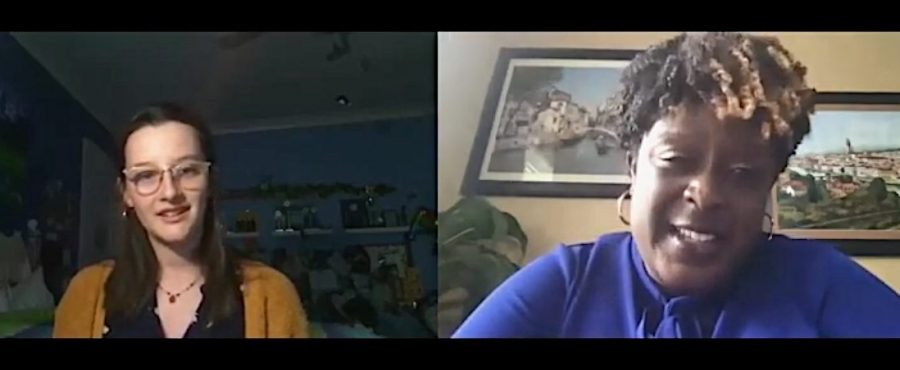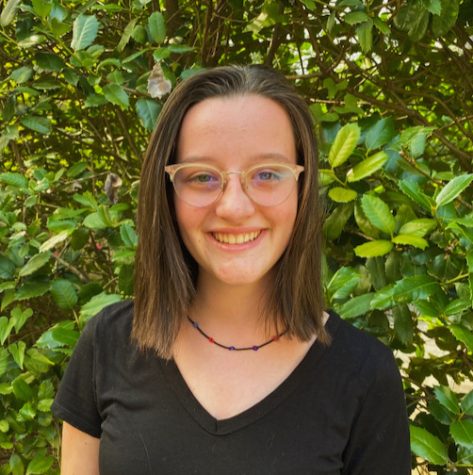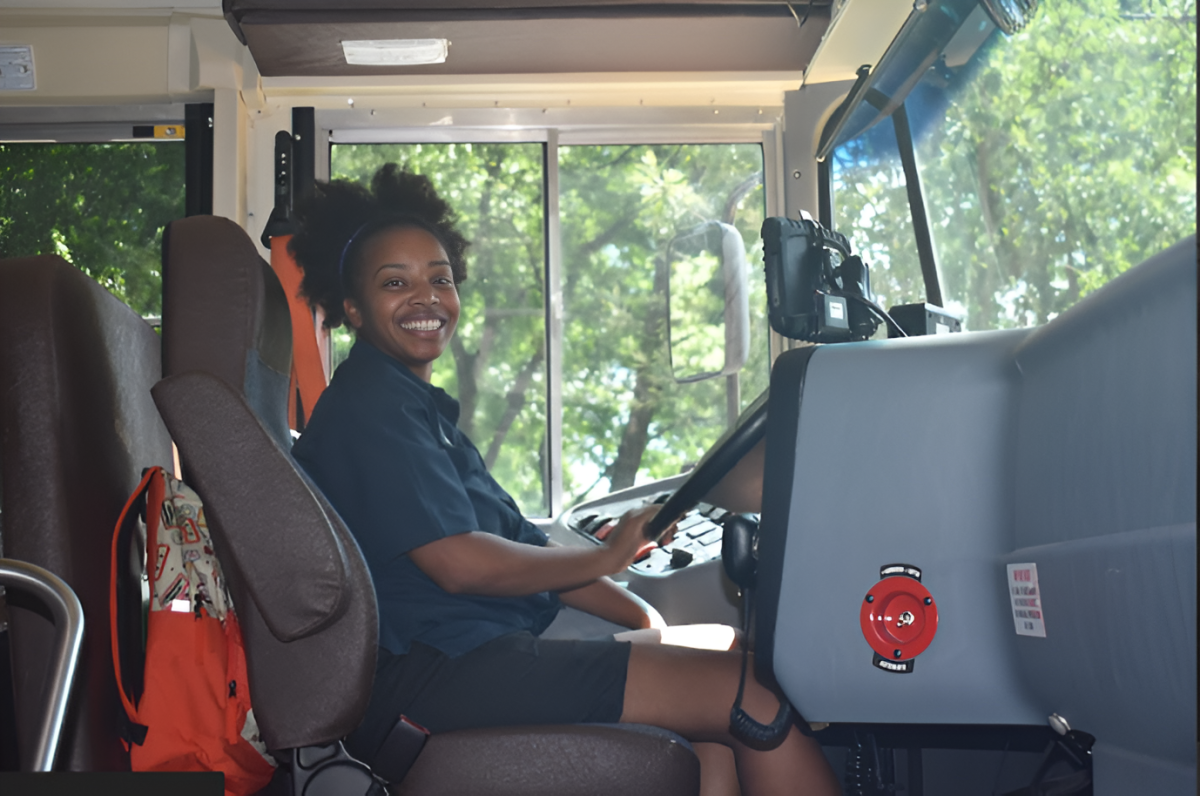Q & A with sole superintendent finalist Dr. Lisa Herring
The Southerner sat down with Dr. Lisa Herring, sole finalist for APS superintendent, to discuss pertinent issues that face the district.
April 30, 2020
Dr. Lisa Herring, current superintendent of Birmingham City Schools, was announced on April 21 as the sole finalist for the superintendent of Atlanta Public Schools (APS). She is scheduled to transition into her role as APS superintendent on July 1. The Southerner had an exclusive interview to learn more out about Herring’s plan for the future of APS.
How does it feel to be returning back to your home state to serve in this role?
“I’ve used several words that have come to mind immediately around my feelings and emotions. I am excited, humbled and honored to be considered the sole finalist for the superintendent for the city of Atlanta’s Atlanta Public Schools. That’s important to me, that I’ve been able to find myself at this level at this time in my life. Coming home has the same feeling as when you walk into the door of a place that’s familiar and happy and healthy and holds memories. It’s a joyous feeling. It comes with, as I shared earlier, excitement and because of the season that we’re sitting in the pandemic, with a high sense of care and concern. I’m honored to be here. I’ve said other things like over the moon excited, which I am. I’m just grateful.”
What current issues in the district do you hope to resolve as superintendent?
“Here’s what’s on the top of my mind on a day to day basis as a sitting superintendent and as the superintendent for Atlanta Public Schools. The issue tied with how do we support everyone during a pandemic, all of us who are impacted by social distancing. I think about the wellness of each of us. I like to emphasize my hope that everyone is well, but that we have a serious responsibility in the coming weeks and months to think about what the return will look like, and how do we make sure that for those who need additional support in their day to day existence, that we can wrap our arms around that. How do we do that whether it’s a student or an adult? I think all of us have questions about what walking into the school building looks like and what are the safety precautions there. Of course there’s this space tied to virtual learning and how will we be able to map out our progress and be able to say what we’ve accomplished and what we still need to do. From an educator and teacher lens, it’s how do you assess progress and then also intervene. Before we do all of that, it goes back to the first thing I shared. How do we make sure that all of us are well so that we can continue the business of teaching and learning in this school system? Those are the things that I think about most immediately. And then, of course, reaching across the community, our APS community as well as our community that is greater Atlanta.”
How will you continue prioritizing equity in education in Atlanta?
“Let’s talk a little but about what the school system has already done: the Board of Education has put equity policy in place. There’s an equity task force that I’ve gotten the chance to briefly engage with. The pandemic makes all of us look out how well-resourced we are, not just in households, but in schools and how well-resourced we were in classrooms. That lens of equity has to be the eye that we now continue to look through from this point forward to figure out where our deficits exist, not just in the resource place of a laptop or wifi, but in a resource place from school to school and classroom to classroom. From textbooks to health and support, we need to examine that carefully and we will pause and take time to do that with a sense of urgency, but a deliberate pause so that we can make decisions that will equitably impact students in the way that it should so that they have all they need to be successful.”
What are the main similarities and differences between the Birmingham Public Schools district and Atlanta Public School (APS), and how do you plan on adapting your strategy to fit APS?
“Birmingham is a city school system as well. It’s a smaller system in terms of number, although greater Birmingham is larger in overall population. Birmingham City Schools has about 23,000 students, but it also has a high poverty, high Title I district, high growing ESL or ELL population and a strong percentage of students with disabilities exist in the district. Looking at how we serve and support students through the lens of equity is also similar. What I’d say is a constant everywhere I’ve been, but your question is specific to Birmingham and Atlanta, is the opportunity for me to build relationships with first and foremost board members. There are nine school board members in Birmingham as well as there are nine here in Atlanta. In addition to that, establishing a healthy relationship with the partners outside of the school system like with the mayor and with City Council and political officials; that comes with the work of a superintendent. I’ve been really proud of being able to establish strong relationships, so I hope to do that here. That’s a similarity or opportunity that I think is similar. I believe that it’s fair to say that APS is a bit more diverse in overall racial demographics than Birmingham, but it’s more like the other districts that I’ve worked in, but since we’re staying within the Birmingham and Atlanta comparison, I’m excited about the opportunity to champion all students and all families as I work to support, serve and lead them as superintendent.”
What is the biggest thing that you’ve learned while being a superintendent in Birmingham that you hope to implement in Atlanta?
“The biggest thing that I’ve learned while superintendent is that the role of a superintendent is a significant responsibility when you consider school leadership. My priority work is tied to helping ensure that students have what they need to be successful. Yet the biggest thing that I’ve learned is that at the end of the day, for all of the resources, for all of the efforts that are tied to hiring individuals who are capable and qualified to lead, for all of the focus that we put on strategy and equity, at the end of the day, all of this work is about the student. What I learned immediately in the first few months of my first superintendency was that we have to be child focused. It’s not about the adults as much as it’s about the children. Now, that’s not to minimize that having the right adults in front of you matters, because it matters greatly. For every adult, we’re here to serve you. I try not to lose sight of that. I can’t emphasize that enough. For a superintendent, there are so many spaces in which you’re pulled and so many decisions that you have to make at a very high level. At the top of one’s thoughts and in the forefront of all that you do, for me the guiding question is: how does it impact the children? That’s the biggest thing I’ve learned. To keep in front of me at all times is that this work is about the children, or the scholars or however you like to be called and that you all are well and that we are doing right by you and your future.”
How do you plan to build public support in the APS district?
“I like to do that together. Here’s the thing. I believe that all of us play a role in helping promote our system. As superintendent, I have a unique opportunity to be a leader in that. When you talk about building community support for the superintendent, taking the time to build relationships with not just community leaders but community partners is important to better understand what makes us uniquely APS, not just from the school standpoint, but also teacher standpoint, student standpoint and parent standpoint. To invite colleagues to join me at the table, because for every individual represented, that’s a different dynamic, that’s a different uniqueness that helps us build community. The other part to that is trying really hard to be an effective communicator and an intentional listener. I’d like to execute that as much as possible. And for wherever there’s a chance to learn and know more about a person or an entity or body of work that helps us grow, I’ll be paying attention to that as well. I think that that exists all across the community of Atlanta.”
What words of wisdom or comfort do you have for the families and teachers who are losing hope about school reopening on time for the 2020-2021 school year? How will you ensure student, faculty and staff safety?
“Here are my words of hope that I take seriously and I’ve been thinking about this every day since March 16th. Here we are, you and I, we’re meeting each other and it feels like you’re right in front of me, but technically we can’t reach out and touch each other. The beauty of education is that we’re used to the traditional, brick and mortar of the building that we go to, but learning happens everywhere. If I could inspire hope, it’s the fact that the reality of our not walking into a school building everyday does not mean that learning has stopped. We own that there’s an opportunity to have more resources, more effective and appropriate resources in all households, and I believe that we will get there. In the meantime, this is a chance for us to engage in creative, supportive ways to learn, whether that learning is, for those of us who have never cooked before, using that as a teachable moment. Seizing the teachable moments every chance we get, whether it’s when you wake up from a dream whether it was exciting or concerning, to journal and write it down because that’s effective writing or at least it’s practice.”
“Whereas the devices are in front of us, all of us, just like you and I right now. It’s ok to also pick up a book and turn the pages or do it on your device if that’s what you enjoy. If there are talents and skills that you’ve not had time before to pause and explore, do that. Know that this season puts us all in a space where I like to say that academic grace is something we have to consider. There’s got to be some grace and understanding in how we establish accountability and assessment because right now all of us have been brought to pause. I invite us to be encouraged to utilize our creativity and obviously take advantage of the resources we do have to do teaching and learning in a different space. If you’re in a household where there isn’t someone who can help you, there might be other ways that you could reach out to get support. We’re going to be well.”
“When we had the call with the Student Advisory Council the other day, I still remember very vividly, someone sharing, I won’t say the name without permission, about how it was difficult to figure out the learning process with the device at first. Another student said, in his own words, that it kind of just sucked being at home everyday and I think it was his own way of saying he missed the people. We will get back to that. I want us to be encouraged that we will get back to that. In this interrupted moment of time, let’s learn more about ourselves and learn more about each other. If for some reason wellness isn’t around you, that you don’t keep that quiet and that share out and let others know so that we can help support each other. That’s what I would want to say. There will be a date. I can’t call it, but there will be a date in which we will return, and when we do, the other reassurance of hope will be that we will do all that we can to make sure that that’s a safe return as well. So that that doesn’t create another element of fear.”
Is there a possibility of having virtual learning in the summer?
“I think that that’s possible. Because I haven’t fully transitioned yet and Dr. Carstarphen is still in place, there will be a transition window for me to entertain that and I could speak more definitively to that. Because the question is grounded in possibility, I would imagine that there would be possibility.”
What mental health resources are available either right now or will become available under your watch that will help students and families during this time?
“One of the things we put in place in Birmingham not too long ago was the emphasis on accessibility to school counselors and social emotional platform and programs for students and families to know that that exists. We also had phone numbers for individuals to call in the event that they need additional support. For me, as I transition, I will learn quickly what are the practices and the communications that we have in place in APS. That’s a learning opportunity because I can’t speak to what currently is in place as I am not yet there, but we want to make sure from a wellness model that that remains. We even have our school nurses as a point of contact for students who have individualized health plans so that there has been follow up for them and their families. I hope that if there is not something similar, that there is something already in place for APS. If not, we’ll certainly entertain that.”
I understand that APS distributed most of its laptops during COVID-19 to fill the need during distance learning this spring (a value of ~$5M). What will you do to replace that needed technology?
“The honest answer to that is that upon my transition, that’s an opportunity for me to sit down with the CFO and also with the board to gain information from school leadership and cluster to know what remains in terms of the fiscal opportunity and how do we then look into repurposing and reallocating funds. The plan is to sit down and assess what our resources are so we can then execute a more descriptive and detailed plan. To do that without information in front of me would be a little bit premature, but to own that that’s an initial conversation that has to come very soon is something that I want you to hear me say.”
If you wanted to share one message with the Grady community, what would it be?
“I want to continue to champion the success of what I’ve learned and known all my life about Grady High School and to the Grady community at large. There is so much to be proud about, not just from the sense of academic achievement, but from the sense of community and culture. I look forward to the understanding of what I can continue to champion. The other component is as we think about the future, I’m excited and encouraged to look forward to the times where hopefully face to face we can sit at the table and build relationships with me and leaders, whether it’s student leaders, school leaders or community stakeholders who are invested in the success of Grady. We can help take all of this work to the next level and I would not be myself if I didn’t say that I’d like to do that through a lens of equity that the district has put in place. The work tied to the plan is something I know we have to lift together and I’m excited to do that.”
“To the class of 2020, I want you to be encouraged. 2020, for senior class members for this year, is like no other. You are history makers and I don’t want you to forget that. For as much that we know it may not look the way it has traditionally looked, what you are also doing is creating a path of how graduation and closing out school will look for those in the future. I want all of the seniors to be encouraged.”








Janet Ell • Jul 11, 2020 at 9:54 pm
Lisa Herring was on CNN with Wolf Blitzer today and her obvious honesty and wisdom was so refreshing to hear. I am forever grateful for common sense leaders like her!